Oil Pressure Problems
Resolve Your Oil Pressure Problems Today – Sell Your Van to We Buy Many Vans and Get a Free Quote Now!
If you’re facing oil pressure problems with your van and considering selling it, look no further than We Buy Many Vans. Oil pressure issues can be a cause for concern, potentially leading to engine damage and reduced performance. However, at We Buy Many Vans, we accept vans with problems, including oil pressure issues.
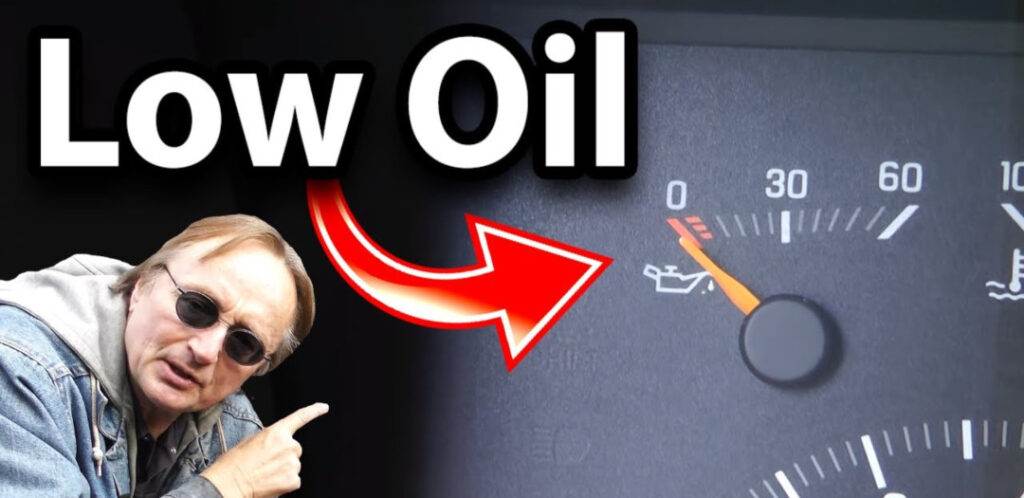
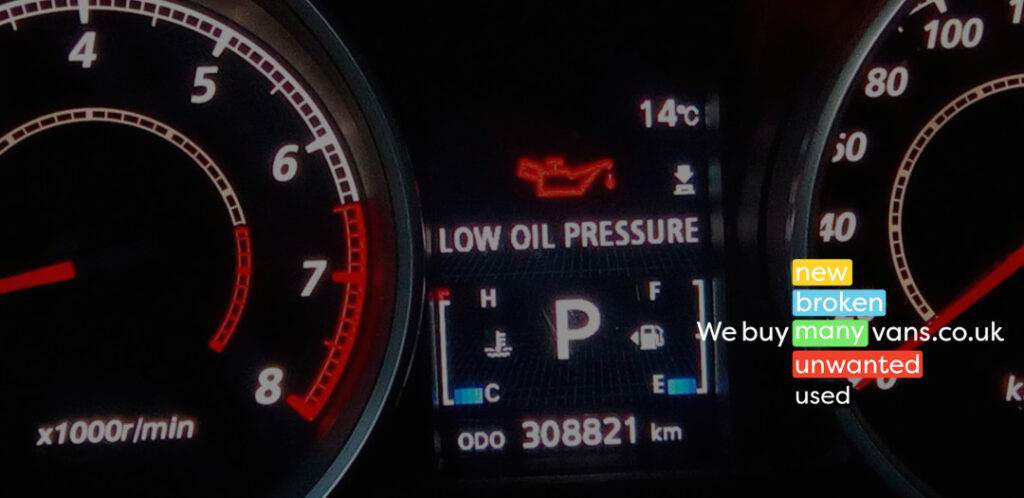
Our team understands the complexities of such problems and can provide you with a fair offer that takes into account the necessary repairs.
Sell your van to We Buy Many Vans and let us handle the challenges while offering you a convenient and hassle-free solution. Contact us today and take the first step towards selling your van with confidence!
Low Oil Pressure: Oil Flow Understanding the Causes
Low oil pressure can be a cause for concern in any vehicle. There are several reasons why your van’s oil pressure may be low, and it is important to understand the causes so that you can take appropriate action. One common cause of low oil pressure is a lack of engine oil.
Engine oil is the lifeblood of your vehicle, and without enough of it, your engine will not function properly. If there is not enough engine oil in your van, this can lead to low oil pressure as well as other problems such as overheating and damage to Turbocharger and other internal components. It is important to regularly check your engine’s oil level and top it up when necessary.
Another common cause of low oil pressure is a problem with the engine’s lubrication system. This could be due to a clogged or faulty filter, worn bearings or seals, or even a malfunctioning pump. These issues can all affect the flow of engine oil through the system, leading to decreased pressure levels.
Regular maintenance checks on these components can help prevent problems with low oil pressure from occurring in the first place.
Causes of Low Oil Pressure: A Comprehensive Guide
Common Van Faults: Low oil pressure is a common issue that can occur in any vehicle. One of the main causes of low oil pressure is a lack of engine oil or low engine oil pressure. This can be caused by various factors such as leaks, worn-out bearings, or an inefficient oil pump. It’s important to maintain proper levels of engine oil and regularly check for leaks to avoid this problem.
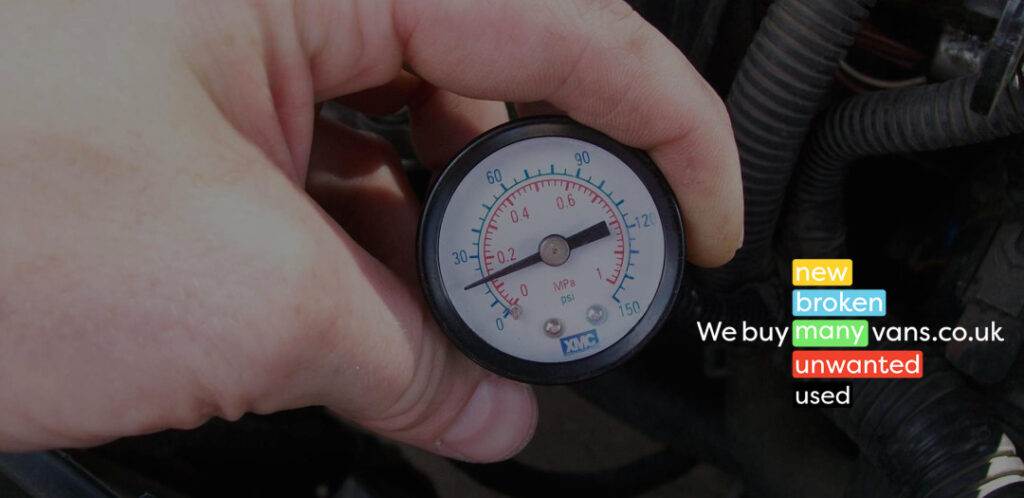
Another cause of low oil pressure is high viscosity or thick engine oils. Thick oils don’t flow easily through the engine and may lead to poor lubrication resulting in low-pressure readings on your dashboard gauge. Using the correct grade of motor oil recommended by your manufacturer will help prevent this issue.
A faulty or damaged oil pump can also cause low-pressure readings on your dashboard gauge.
The role of an oil pump is to circulate the engine’s lubricant throughout its components, but if it fails, there won’t be enough pressure generated within the system leading to lower-than-normal readings on your dash gauge. Regular maintenance checks including inspecting and replacing worn-out parts like an old or damaged pump will ensure that you have a healthy running van with normal Oil Pressure in Your Engine
Common Causes of Low Oil Pressure in Your Vehicle

One common cause of low oil pressure in your vehicle is a clogged oil filter. The purpose of the oil filter is to remove impurities from the engine oil before it circulates through the engine. Over time, however, the filter can become clogged with debris and restrict the flow of oil, resulting in a drop in engine oil pressure.
Another possible cause of low engine oil pressure is an old or dirty oil change. Engine oil breaks down over time and loses its ability to lubricate and protect critical engine components. As a result, if you do not change your van’s motor oil regularly, it can lead to high levels of friction and heat buildup within your engine that may eventually cause an increase in wear on internal parts.
A damaged or leaking gasket on your van’s oil pan can also be responsible for causing low-oil-pressure issues. If there are any cracks or holes present on this component, then it will allow for leaks that could lead to an insufficient amount of fluid circulating throughout your vehicle’s system – ultimately leading to lower-than-normal readings when checking for proper levels at regular intervals.
Remember: It’s important to check both the level and quality of your van’s motor oils regularly as well as schedule routine maintenance checks every few thousand miles driven!
Sell Your Van In Three Easy Steps
Hassle-Free Selling Process
01.
Get a quote
02.
Schedule a pickup
03.
Get paid
Engine Oil: The Lifeblood of Your Vehicle
Engine oil is the lifeblood of your vehicle, as it plays a crucial role in keeping your engine running smoothly. It lubricates all moving parts and prevents them from grinding against each other, reducing friction and wear. However, it’s important to ensure that you maintain the proper levels of engine oil at all times.
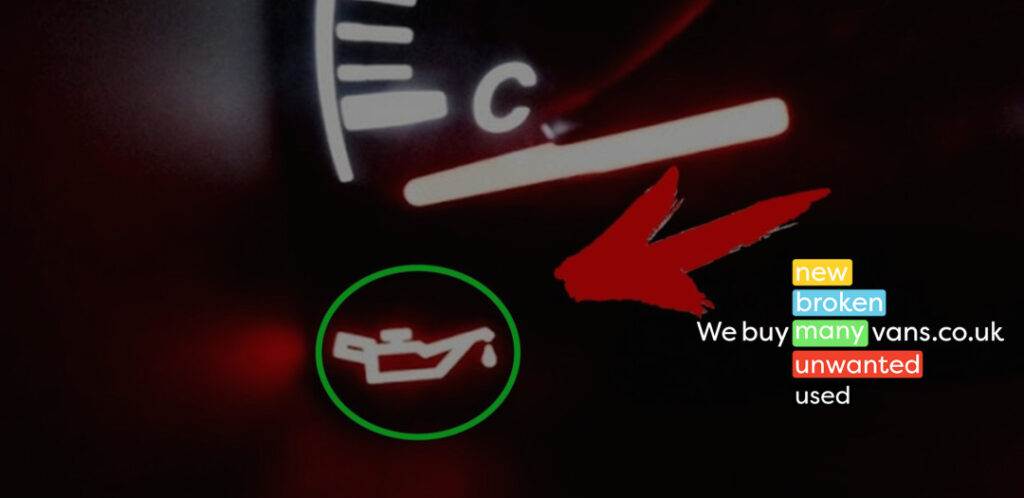
One way to do this is by regularly checking your oil level using the dipstick under the hood. If you notice that your oil level is low, you may need to add more motor oil or get an oil change if it’s been a while since your last one. Another factor to consider when maintaining proper engine health is changing out the filter with every new batch of motor oil.
Low engine oil pressure can be caused by several things such as an insufficient amount of motor oil in the system or a clogged up filter causing poor circulation through vital areas within the engines mechanics resulting in less than ideal performance over time.
This can lead to serious problems like overheating and even complete seizure of internal components which could result in expensive repairs down-the-line.Make sure you keep up-to-date with regular maintenance checks on not only Oil Levels but also Pressure Gauges & Sensors for early detection before these symptoms begin affecting overall performance.
Understanding the Common Causes of Low Oil Pressure
One of the most common causes of low oil pressure is not having enough oil in your engine. It’s important to regularly check and maintain proper oil levels, as low engine oil can cause serious damage to your vehicle’s performance and longevity. If you notice that your oil pressure gauge or warning light is indicating low pressure, it could be a sign that you need to add more oil.
Another potential cause of low oil pressure is high mileage on your vehicle. Over time, wear and tear can lead to decreased engine performance and lower overall oil pressure. This can be especially true for older vehicles with high odometer readings. Regular maintenance such as changing the oil filter and using quality motor oils can help mitigate this issue.
It’s also possible that there may be an issue with the components responsible for monitoring or regulating your engine’s oil pressure, such as the oil pressure sensor or relief valve. A faulty sensor may give inaccurate readings, while a clogged relief valve could result in higher than normal pressures which then drop suddenly when it opens up again. These issues should be addressed promptly by a professional mechanic to ensure the proper functioning of your vehicle’s lubrication system without causing further damage due to lack of attention
- Regularly check and maintain proper oil levels to avoid low engine oil pressure
- High mileage on your vehicle can lead to decreased engine performance and lower overall oil pressure
- Changing the oil filter and using quality motor oils can help mitigate low oil pressure due to wear and tear
- Components responsible for monitoring or regulating your engine’s oil pressure, such as the oil pressure sensor or relief valve, may be faulty
- A faulty sensor may give inaccurate readings while a clogged relief valve could result in higher than normal pressures which then drop suddenly when it opens up again.
Common Causes of Low Oil Pressure in Your Vehicle
One of the most common causes of low oil pressure is a low oil level. If there isn’t enough oil in your engine, it can’t properly lubricate all the engine parts and maintain sufficient oil pressure. This can lead to increased friction and heat, which can cause damage to engine components over time. To avoid this problem, make sure you check your oil regularly and keep it at the recommended level.
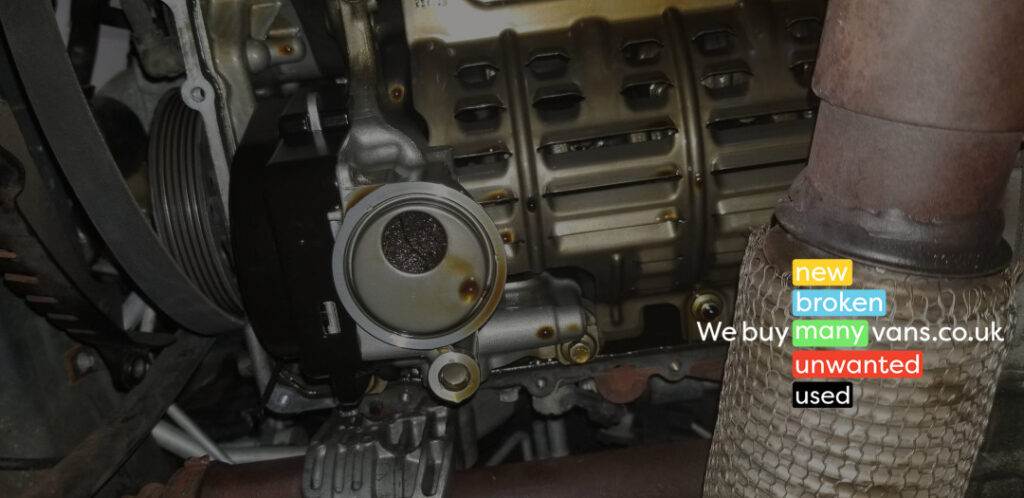
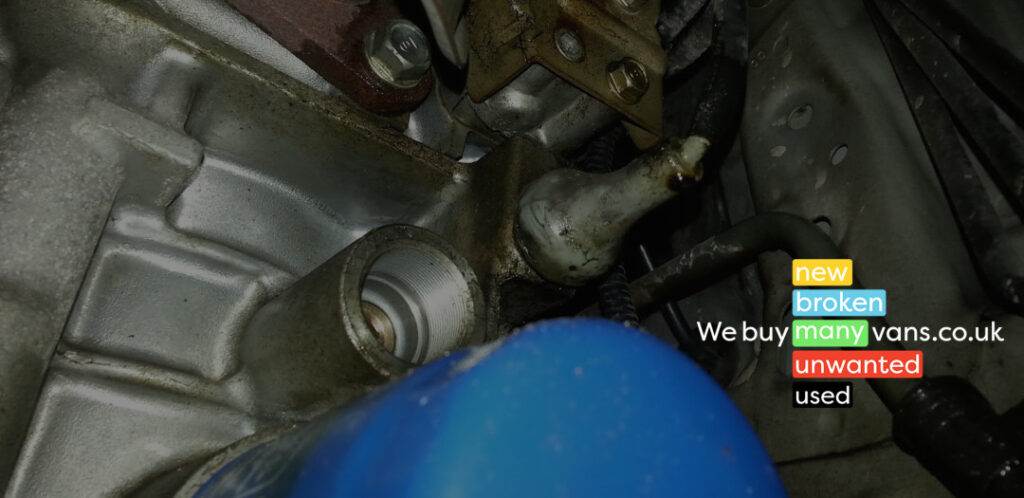
Another factor that causes low oil pressure is the use of an improper viscosity grade of motor oil. Low-viscosity oils are thinner and flow more easily than high-viscosity oils.
While they can improve fuel efficiency by reducing friction between moving parts, they may not provide adequate protection for older engines or those with worn components. It is essential to use the proper viscosity grade recommended by your vehicle manufacturer.
Worn engine components are also common causes of low oil pressure in vehicles. Over time, various engine parts such as bearings, piston rings, or cylinder walls wear out due to constant use or poor maintenance practices, such as infrequent cleaning or irregular servicing intervals. These worn components lose their effectiveness, leading to reduced performance and lower levels of compression.
As a result, low-pressure issues can arise in your van’s system without warning signs, like an illuminated dashboard light indicating insufficient lubrication due to inadequate circulating fluid within its internal mechanisms.
Common Causes of High Oil Pressure in Your Van
Engine oil plays a critical role in maintaining the proper functioning of a vehicle’s engine. While low oil pressure can be a concern, high oil pressure can also indicate underlying issues that need attention. Understanding common engine oil problems that can lead to high oil pressure is essential for maintaining your vehicle’s performance and longevity. If you’re experiencing high oil pressure due to these problems, it may be time to seek professional assistance or consider selling your van to We Buy Many Vans.
Contaminated Oil: Contaminated oil is one of the common culprits behind high oil pressure. Over time, engine oil can become contaminated with debris, metal shavings, sludge, or other impurities. These contaminants can obstruct the oil passages, resulting in restricted flow and increased pressure. Regular oil changes and using quality oil filters can help prevent this issue.
Faulty Pressure Relief Valve: The pressure relief valve is designed to regulate oil pressure within the engine. However, if the valve becomes stuck or malfunctions, it can cause excessive oil pressure. This can occur due to wear and tear or inadequate maintenance. A faulty pressure relief valve may need to be inspected and replaced by a professional mechanic.
Improper Oil Viscosity: Using the wrong oil viscosity for your engine can lead to high oil pressure. Oil viscosity refers to the oil’s thickness or resistance to flow. If the oil is too thick for your engine’s specifications, it can impede proper circulation, resulting in increased pressure. Consult your vehicle’s manual or seek professional advice to ensure you are using the correct oil viscosity.
Oil Pump Issues: The oil pump is responsible for circulating oil throughout the engine, maintaining consistent pressure. However, a malfunctioning or worn-out oil pump can disrupt the flow and cause high oil pressure. Signs of oil pump problems may include noisy operation, fluctuating pressure, or a oil pressure warning light on the dashboard. A qualified mechanic should diagnose and address any oil pump issues promptly.
Engine Overheating: Excessive engine heat can affect oil viscosity and lead to high oil pressure. When the engine overheats, the oil may become thinner, reducing its ability to lubricate properly. This can result in increased friction and subsequently higher oil pressure. Regular cooling system maintenance, including coolant level checks and radiator flushing, can help prevent engine overheating.
If you’re facing high oil pressure due to these or other engine oil problems, it is crucial to address them promptly. Ignoring high oil pressure can lead to severe engine damage and decreased performance. Seeking professional assistance from a trusted mechanic is advisable to diagnose and resolve the underlying issues.
Alternatively, if you find that the cost of repairs is significant or you prefer to sell your van rather than dealing with the repairs, We Buy Many Vans can offer a convenient solution.
We specialise in purchasing vans in any condition, including those with oil pressure problems. By selling your van to We Buy Many Vans, you can avoid the hassle of repairs and receive a fair offer based on your van’s condition. Contact us today to explore your options and sell your van with ease.
Oil Viscosity: What You Need to Know
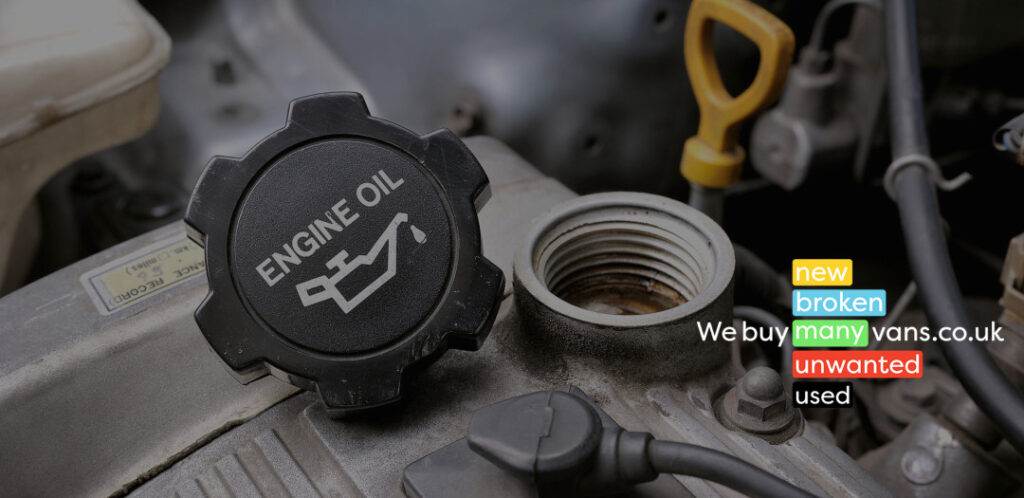
The viscosity of the oil in your vehicle plays a crucial role in maintaining proper engine function. If the internal oil is too thin, it can cause excessive wear on engine bearings and other components.
On the other hand, if the oil has a higher viscosity than recommended by the manufacturer, it may not flow properly through smaller passages within the engine and could lead to symptoms of low oil pressure.
To ensure that your vehicle’s engine runs smoothly, it’s important to change the oil at regular intervals as recommended by your van’s manufacturer.
When you change the oil, make sure to check its level and quality regularly thereafter.
If you notice any drop in oil pressure or unusual noises from your engine while driving, stop immediately and check your oil level.
If you suspect that there might be an issue with your vehicle’s oil pump or faulty oil pressure sensor causing low levels of internal lubrication within vital areas of your engine – such as around piston rings – then have them checked out by a qualified mechanic who specialises in automotive repair work before continuing to drive!
Common Engine Oil Problems That Affect Oil Pressure
One common engine oil problem that affects oil pressure is using the wrong type of oil. If your vehicle’s oil pressure is too low, it could be due to using an incorrect or old oil. The right oil can generate the necessary pressure due to its viscosity and other properties. Checking the owner’s manual for the recommended type of oil and changing it regularly can help maintain proper pressure in the system.
Another issue that can affect the oil pressure is a clogged or dirty filter. When debris accumulates in the filter, it creates greater resistance from the oil trying to pass through, leading to lower pressure in the system. Regularly replacing your vehicle’s filters will ensure that they do not become clogged with dirt and debris.
The third common engine oil problem affecting pressure is a malfunctioning relief valve, which helps regulate excess pressure by releasing some of it back into the pan when needed. If this valve fails or becomes stuck open, you may see a drop in your vehicle’s oil pressure as more fluid flows back into the pan than what should be circulating through your engine at any given time. In such cases, checking both your van’s manual and consulting a mechanic would be helpful steps towards fixing issues related to low-pressure gauge readings on either a sensor or gauge display screen inside most modern vehicles today.
The Importance of Regular Oil Changes for Your Vehicle
Regular oil changes are an essential aspect of maintaining your vehicle’s health. Neglecting to change your oil can result in various problems, including low oil pressure. Low oil pressure could be due to several reasons, such as a problem with the oil pump or a clogged filter.
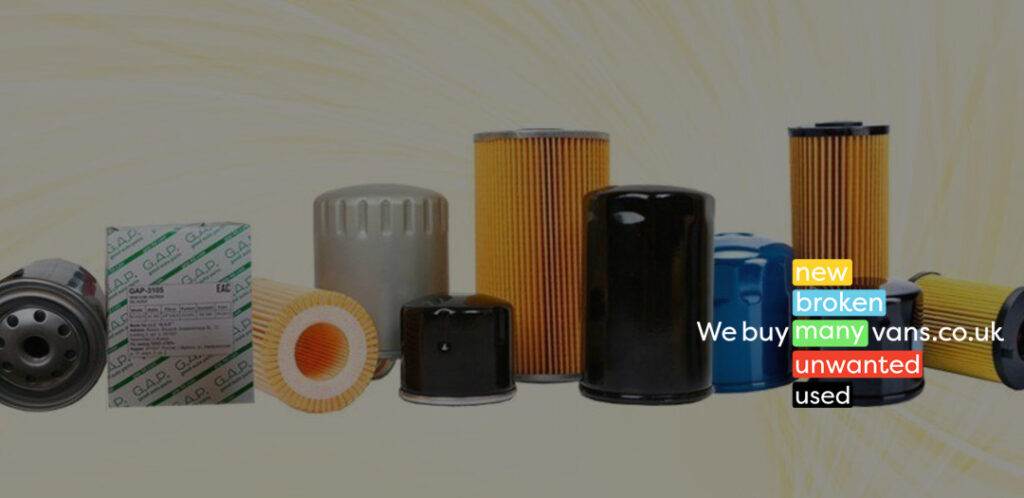
One common cause of low oil pressure is when the engine is running normally, but the oil level is low. If you notice that your van has been leaving behind drops of oil on the floor or if you see that the oil level is dropping frequently, it may be time to change your oil. Additionally, using high viscosity oils can also cause low pressure since they don’t flow as easily through the engine.
It’s crucial to ensure that your vehicle’s normal operating range for its engine’s lubrication system includes normal levels of pressure and proper flow rate; otherwise, it could lead to significant damage down the line.
Regularly changing your van’s motor oils will help keep everything working smoothly and avoid any issues related to low-pressure relief valves or other components affected by poor lubrication from dirty or old fluids.
In conclusion, make sure always to check and maintain regular maintenance routines like changing out used-up petroleum products regularly so that you can enjoy trouble-free driving without worrying about potential problems due to neglecting this critical task!
Engine Oil Pressure : How It Affects Your Vehicle's Performance
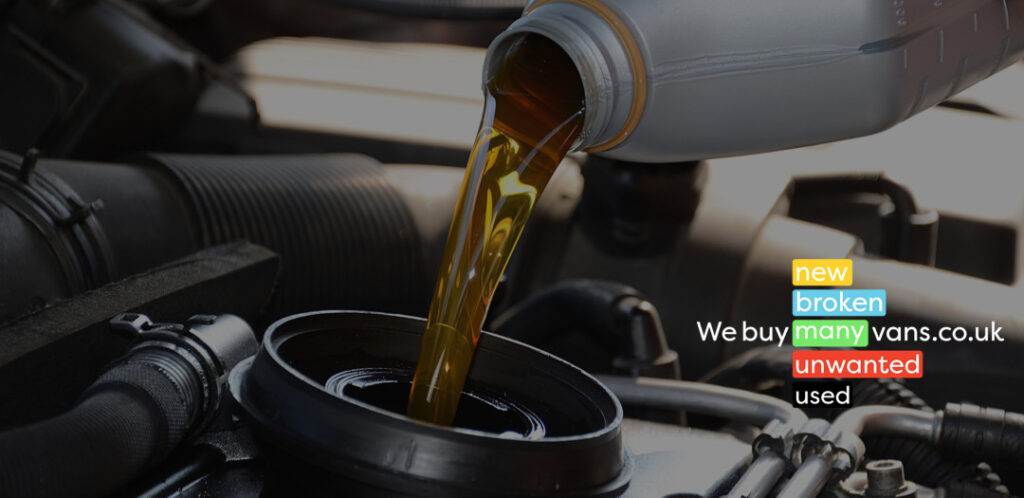
Engine oil plays a crucial role in the performance of your vehicle. It lubricates the parts of your engine, allowing them to move smoothly without causing any friction or damage. One important factor that affects the performance of motor oil is its pressure level. If the pressure drops too low, it can cause serious problems for your engine.
There are five common causes of low oil pressure in vehicles: poor oil maintenance, worn out bearings, clogged filters, faulty oil pump, and incorrect viscosity of motor oil. Regularly changing your motor oil at recommended intervals can help prevent these issues from occurring.
When you neglect to change your motor oil on time or use an incorrect type or grade of motor oil, it can cause blockages in the flow of oil through different parts of your engine. This leads to decreased lubrication and increased friction between moving parts which results in a drop in pressure levels. To ensure proper functioning and longevity for your vehicle’s engine components, have it regularly checked and pressure tested by a professional mechanic who knows how to handle such situations with expertise and vane.
Oil Pressure Problems Frequently Asked Questions
Engine oil pressure refers to the force that is exerted by the engine oil as it circulates through the engine.
Engine oil pressure is essential for proper lubrication and cooling of the engine. Without adequate oil pressure, the engine can suffer from increased wear and tear, overheating, and reduced performance.
Low oil pressure can be caused by a number of factors, including a faulty oil pump, clogged oil passages, low oil level, worn engine bearings, or a damaged oil filter.
Signs of low oil pressure include engine noise, oil leaks, illuminated warning lights, or a decrease in overall vehicle performance.
Regular oil changes, using the correct viscosity of oil, and keeping the oil level at the recommended level are all important in preventing low oil pressure.
Oil viscosity refers to the thickness of the oil. The viscosity rating on an oil bottle is a measure of the oil’s resistance to flow.
Using oil with the wrong viscosity can lead to increased engine wear and reduced oil pressure. It is important to use the recommended oil viscosity for your vehicle.
It is recommended to change your vehicle’s oil every 3,000 to 5,000 miles or as recommended by the manufacturer.
Yes, low oil pressure can usually be fixed by identifying and addressing the underlying cause, such as replacing a faulty oil pump or cleaning clogged oil passages.
Sell Your Van Today to We Buy Many Vans
Encountering low or high oil pressure problems in your van can be a cause for concern, as it can lead to engine damage and diminished performance. Promptly addressing these issues is crucial for maintaining the optimal functioning of your vehicle. When faced with such problems, selling your van to We Buy Many Vans can provide a convenient and hassle-free solution.
At We Buy Many Vans, we understand the intricacies associated with oil pressure problems. Whether your van has low or high oil pressure, our team of experts is well-equipped to handle these issues. We specialise in purchasing vans in any condition, including those with oil pressure problems, offering you a stress-free selling experience.
By choosing to sell your van to We Buy Many Vans, you can avoid the expenses and inconvenience of repairing the oil pressure problems. We take into account the necessary repairs when providing you with a fair offer for your van. Additionally, by selling your van to us, you can save valuable time and effort in finding a buyer who understands and appreciates the challenges associated with oil pressure issues.
Don’t let oil pressure problems hold you back from selling your van. Contact We Buy Many Vans today to get a free quote and take the first step towards resolving your oil pressure issues. Our dedicated team is ready to assist you in selling your van with low or high oil pressure problems, ensuring a smooth and efficient process. Sell your van to We Buy Many Vans and experience a seamless transaction that values your vehicle’s condition and helps you overcome oil pressure hurdles.
Van Troubleshooting Guide: Common Problems from Fuel Pumps to MOT Failures
Here’s the list of van problems in order from most common to least common:
- Fuel Pump Problems
- ECU Problems
- Fuel Injector Problems
- Turbo Engine Problems
- DPF Problems
- Wiring Loom Problems
- Oil Pressure Problems
- Differential Problems
- MOT Failure Vans
- Timing Chain Problems
- Engine Warning Light
- Gearbox Failure
Please note that the order may vary depending on various factors such as the specific van model, maintenance practices, and driving conditions. This list is a general representation of common van problems but may not reflect the exact frequency of occurrence in all cases.